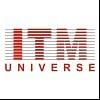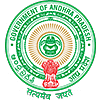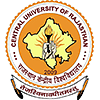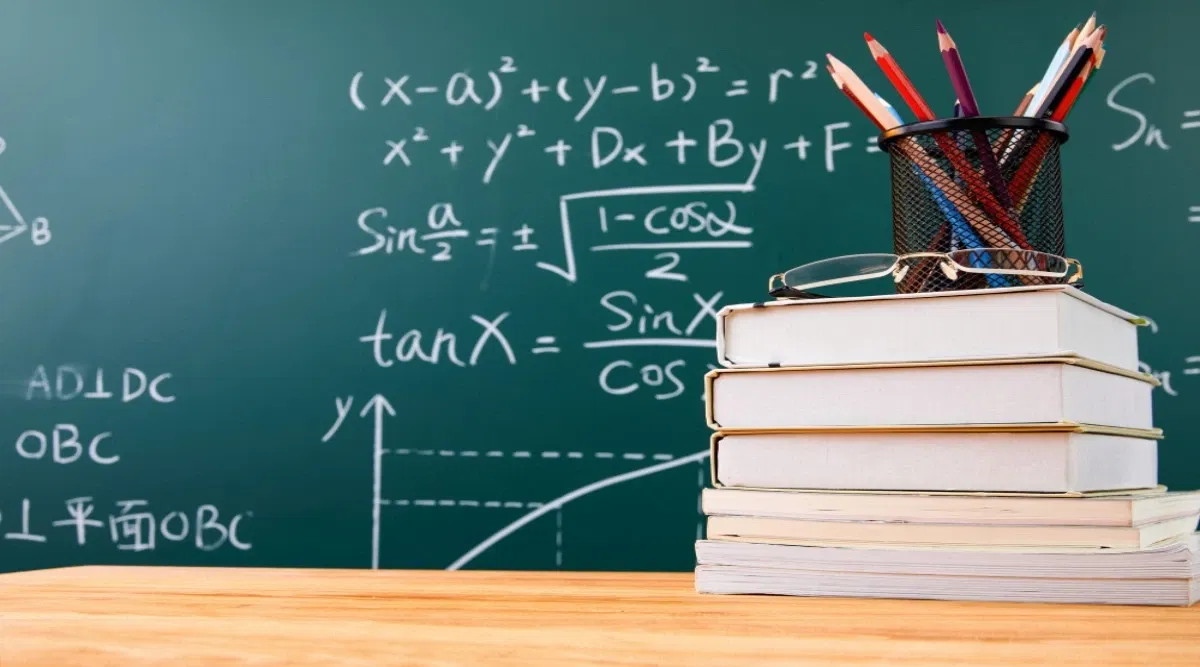
Table of Contents
- GATE Chemistry Syllabus 2026 PDF Download
- GATE Chemistry Syllabus 2026
- GATE Physical Chemistry Syllabus 2026
- GATE Inorganic Chemistry Syllabus 2026
- GATE Organic Chemistry Syllabus 2026
- GATE Chemistry Syllabus 2026 Weightage of Important Topics
- GATE Chemistry Sample Papers
- GATE Chemistry Syllabus 2026 Preparation Tips
- GATE Chemistry Syllabus 2026 Best Books for Preparation
- GATE Chemistry 2026 Exam Pattern
- GATE Chemistry Previous Year Question Papers
GATE Chemistry syllabus 2026 will be released on the official website by IIT Guwahati. It includes three major sections: Physical Chemistry, Inorganic Chemistry, and Organic Chemistry. The key topics in the GATE chemistry syllabus are Chemical Kinetics, Group theory, Spectroscopy, Thermodynamics, Bio-inorganic chemistry, and more.
The Chemistry paper of GATE 2026 will involve 65 questions; 55 from the core subjects and 10 from the general aptitude. GATE 2026 Chemistry paper is coded as CY. Those who opted for this paper can choose between Chemical Engineering (CH) or Life Sciences (XL) as their second choice of paper.
GATE Chemistry Syllabus 2026 PDF Download
The examination authority will release the official GATE Chemistry Syllabus 2026 PDF on the official website of GATE 2026. You can download the syllabus from the official website or from the link given below:
| Particulars | 2025 Syllabus Link | 2026 Syllabus Link |
| GATE Chemistry Syllabus | Download Here | To Be Updated |
GATE Chemistry Syllabus 2026
The GATE Chemistry Syllabus 2026 comprises three sections. The GATE syllabus 2026 PDF for each topic is attached in the table below. You can download it and check the syllabus:
| GATE 2026 Chemistry Syllabus | Download |
| Physical Chemistry | To be Updated |
| Inorganic Chemistry | To be Updated |
| Organic Chemistry | To be Updated |
GATE Physical Chemistry Syllabus 2026
GATE Physical Chemistry syllabus is divided into six topics. Check out the topics and subtopics involved in the Physical Chemistry section of the GATE Chemistry syllabus 2026:
GATE 2026 Physical Chemistry Syllabus: Structure
| Postulates of quantum mechanics | Operators |
| Time-dependent and time-independent Schrödinger equations | Born interpretation |
| Harmonic oscillator | Rotational motion |
| Hydrogen and hydrogen-like atoms | Multi-electron atoms |
| Chemical bonding | Approximation Methods |
| Hybrid orbitals | Hückel approximation and its application to annular π– electron systems |
GATE 2026 Physical Chemistry Syllabus: Group Theory
| Symmetry elements and operations | Point groups and character tables |
| Internal coordinates and vibrational modes | Symmetry-adapted linear combination of atomic orbitals (LCAO-MO) |
| Construction of hybrid orbitals using symmetry aspects | - |
GATE 2026 Physical Chemistry Syllabus: Spectroscopy
| Atomic spectroscopy | Russell-Saunders coupling |
| Term symbols and spectral details | Rotational, vibrational, electronic, and Raman spectroscopy of diatomic and polyatomic molecules |
| Line broadening | Einstein’s coefficients |
| Relationship of the transition moment integral with the molar extinction coefficient and the oscillator strength | Basic principles of nuclear magnetic resonance |
GATE 2026 Physical Chemistry Syllabus: Equilibrium
| Laws of thermodynamics | Standard states |
| Thermochemistry | Thermodynamic functions and their relationships |
| Absolute entropy | Partial molar quantities |
| Debye-Hückel limiting law | Phase rule |
| Clausius- Clapeyron equation | Azeotropes and eutectics |
| Debye-Hückel-Onsager equation | Statistical thermodynamics |
GATE 2026 Physical Chemistry Syllabus: Kinetics
| Elementary, parallel, opposing, and consecutive reactions | Mechanisms of complex reactions |
| Unimolecular reactions | Transition state theory |
| Kinetics of polymerization | Catalysis concepts and enzyme catalysis |
| Kinetic isotope effects | Fast reaction kinetics |
| Diffusion-controlled reactions | Kinetics of photochemical and photophysical processes |
GATE 2026 Physical Chemistry Syllabus: Surfaces and Interfaces
| Physisorption and chemisorption | Langmuir, Freundlich and Brunauer–Emmett– Teller (BET) isotherms |
| Surface catalysis | Surface tension and viscosity |
| Self-assembly. | Physical chemistry of colloids, micelles and macromolecules |
GATE Inorganic Chemistry Syllabus 2026
The section on Inorganic Chemistry consists of the following topics. Learn the chapters included in the GATE Chemistry syllabus 2026 of inorganic chemistry from the table below:
GATE 2026 Inorganic Chemistry Syllabus: Main Group Elements
| Hydrides, halides, oxides, oxoacids, nitrides, sulfides – shapes and reactivity | Allotropes of carbon, phosphorus and sulphur |
| Industrial synthesis of compounds of main group elements | Chemistry of noble gases |
| Acid-base concepts and principles | - |
GATE 2026 Inorganic Chemistry Syllabus: Organometallics
| 18-Electron rule | Types of organometallic reactions |
| Homogeneous catalysis | Fluxionality in organometallic complexes |
| Heterogeneous catalysis | - |
GATE 2026 Inorganic Chemistry Syllabus: Solids
| Crystal systems and lattices | Bragg’s law |
| Instrumental Methods of Analysis | Mössbauer spectroscopy (Fe and Sn) |
| X-ray crystallography | Chromatography |
| Mass spectrometry | Thermoanalytical methods |
| Atomic absorption spectroscopy | Electroanalytical methods |
GATE 2026 Inorganic Chemistry Syllabus: Transition Elements
| Coordination chemistry | Energy level diagrams in various crystal fields, CFSE, applications of CFT, and Jahn-Teller distortion |
| Electronic spectra of transition metal complexes | Orgel and Tanabe- Sugano diagrams |
| Nephelauxetic effect and Racah parameter | Magnetic properties of transition metal complexes |
| Ray-Dutt and Bailar twists | Spectroscopic term symbols |
GATE 2026 Inorganic Chemistry Syllabus: Radioactivity
| Detection of radioactivity | Decay processes |
| Bioinorganic Chemistry | Ion (Na+ and K+) transport |
| Oxygen binding | Half-life of radioactive elements |
| Fission and fusion processes | Nitrogen fixation |
GATE 2026 Inorganic Chemistry Syllabus: Reaction Mechanisms
| Kinetic and thermodynamic stability | Substitution and redox reactions |
| Lanthanides and Actinides | Metal-metal multiple bonds |
| Periodic properties, spectra and magnetic properties | - |
GATE Organic Chemistry Syllabus 2026
The third section of the GATE Chemistry syllabus 2026 is Organic Chemistry. You can expect questions from the following areas.
GATE 2026 Organic Chemistry Syllabus: Stereochemistry
| Chirality and symmetry of organic molecules | Relative stereochemistry in compounds |
| Homotopic, enantiotopic and diastereotopic atoms, groups and faces | Stereoselective and stereospecific synthesis |
| Conformational analysis of acyclic and cyclic compounds. | Geometrical isomerism and optical isomerism |
| Configurational and conformational effects | Atropisomerism |
GATE 2026 Organic Chemistry Syllabus: Organic Synthesis
| Synthesis, reactions, mechanisms and selectivity in compounds | Uses of reagents in organic synthesis |
| Carbon-carbon bond formation through coupling reactions | Multistep synthesis |
| Atom economy and Green Chemistry | Umpolung reactivity |
| Selectivity in organic synthesis | Protection and deprotection of functional groups |
| Concepts of asymmetric synthesis | Carbon-carbon and carbon-heteroatom bond forming reactions |
GATE 2026 Organic Chemistry Syllabus: Heterocyclic Compounds
| Structure, preparation, properties and reactions of furan | Structure, preparation, properties and reactions of pyrrole |
| Structure, preparation, properties and reactions of thiophene | Structure, preparation, properties and reactions of pyridine |
| Structure, preparation, properties and reactions of indole | Structure, preparation, properties and reactions of quinoline and isoquinoline |
GATE 2026 Organic Chemistry Syllabus: Experimental Techniques in Organic Chemistry
| Optical rotation (polarimetry) | Applications of various chromatographic techniques |
| Applications of UV-visible | Mass spectrometry in the structural determination of organic molecules |
GATE 2026 Organic Chemistry Syllabus: Reaction Mechanisms
| Mechanistic concepts of kinetic versus thermodynamic control | Methods of determining reaction mechanisms |
| Linear free-energy relationship – Hammett and Taft equations | Nucleophilic and electrophilic substitution reactions |
| Carbon-carbon and carbon-heteroatom (N and O) multiple bonds | Elimination reactions |
| Reactive intermediates | Molecular rearrangements |
GATE 2026 Organic Chemistry Syllabus: Pericyclic Reactions and Photochemistry
| Electrocyclic | Cycloaddition and sigmatropic reactions |
| Orbital correlations | Woodward-Hoffmann rule |
| Photochemistry of alkenes, arenes and carbonyl compounds | Photooxidation and photoreduction |
| Di-π-methane rearrangement | Barton-McCombie reaction |
| Norrish type-I and II cleavage reaction | - |
GATE 2026 Organic Chemistry Syllabus: Biomolecules
| Structure, properties and reactions of mono- and di-saccharides | Physicochemical properties of amino acids |
| Chemical synthesis of peptides | Chemical structure determination of peptides and proteins |
| Structural features of proteins, nucleic acids, lipids, steroids, terpenoids, carotenoids, and alkaloids | - |
GATE Chemistry Syllabus 2026 Weightage of Important Topics
Here is the topic-wise distribution of questions from the GATE Chemistry syllabus 2026. The table is created by monitoring the past trends in GATE questions from each section.
| Subject | Average No. of Questions Asked |
| Chemical Kinetics | 5 |
| Chemical Equilibrium | 4 |
| Stereochemistry | 4 |
| Transitional Elements | 3 |
| Group Theory | 3 |
| Organics Synthesis | 5 |
| Experimentation Techniques in Organic Chemistry | 2 |
| Biomolecules | 2 |
| Reaction Mechanisms | 5 |
| Main Group Elements | 4 |
| Spectroscopy | 2 |
| Organometallics | 3 |
| Main Group Elements | 4 |
| Structure | 3 |
| Radioactivity | 2 |
| Solids | 2 |
| Pericyclic Reactions and Photochemistry | 2 |
| Heterocyclic Compounds | 2 |
GATE Chemistry Sample Papers
The Chemistry sample papers for GATE Exam 2026 preparation are added below:
GATE Chemistry Sample Papers |
|
| S. No. | GATE Chemistry Sample Papers |
|
1. |
GATE Chemistry Sample Papers 1 |
| 2. | GATE Chemistry Sample Papers 2 |
| 3. | GATE Chemistry Sample Papers 3 |
| 4. | GATE Chemistry Sample Papers 4 |
GATE Chemistry Syllabus 2026 Preparation Tips
Aspirants must use the right strategy to prepare for the GATE Chemistry syllabus 2026 as it impacts the overall score. Keep in mind the following tips to ace the Chemistry section of GATE 2026.
- Go through the test pattern in detail: The GATE 2026 exam pattern for Chemistry involves details like type of questions, sectional weightage, and more. Familiarity with the exam pattern will help you approach your preparation better.
- Refer to the latest syllabus: Check out the GATE Chemistry syllabus 2026 thoroughly before starting your preparation for the test.
- Solve previous papers: Attempt as many mock tests as possible to boost confidence for the exam. Download the past year’s papers to get an idea of the frequently asked questions.
- Regular revision: Review the syllabus on a regular basis, especially in the last month before the exam. It will allow you to retain all that they studied during their preparation.
- Pick the Right Books: Choosing the right GATE 2026 study material for preparation is vital. Also, do not use too many resources at once for GATE chemistry preparation, as it will lead to confusion.
Read More: GATE 2026 Preparation
GATE Chemistry Syllabus 2026 Best Books for Preparation
There are several GATE books available in the market to prepare for the GATE exam. It becomes challenging for the aspirant to select the relevant ones. Here are the best reference books for the GATE Chemistry syllabus 2026.
| Book | Author |
| Success Guide to Inorganic Chemistry | Tauheed Nadeem |
| Success Guide to Inorganic Chemistry | Tauheed Nadeem |
| Concept Check in Organic Chemistry | Avinash More |
| Chapterwise Solved Papers Chemistry GATE 2026 | Sanjay Saxena & Preeti Gupta |
| GATE Chemistry Solved Papers | Career Endeavour Publications |
| Wiley’s Gate Chemistry Chapter Wise Solved papers | Wiley Editorial |
| GATE 2026: Chemistry Year-wise Previous Solved Papers | GKP |
GATE Chemistry 2026 Exam Pattern
As per the exam pattern of GATE 2026, you have to solve 65 questions in a duration of 3 hours. Moreover, the type of questions involved is MCQs and NATs.
| Section | Marks Distribution | Total Marks | Type of Questions |
| General Ability | 5 one-mark questions and 5 questions worth 2 marks each | 15 Marks | MCQs |
| Chemistry | 25 one-mark questions and 30 questions worth 2 marks each | 85 Marks | MCQs and NATs |
GATE Chemistry 2026 Marking Scheme
Refer to the table below to get an overview of the GATE marking scheme 2026 for Chemistry.
| Particulars | Details |
| Total Marks | 100 Marks |
| Negative Marking | MCQs- 1/3 for 1 mark problems 2/3 for 2 marks problemsNATs- No negative marking |
GATE Chemistry Previous Year Question Papers
Aspirants must practice the past year’s papers to gain insights into the key topics from the GATE Chemistry syllabus. Click on the links below to download the previous years' GATE question papers and answer keys.
| Year | GATE Question Paper | Answer Key |
| 2023 | Click Here | Click Here |
| 2022 | Click Here | Click Here |
| 2021 | Click Here | Click Here |
| 2020 | Click Here | Click Here |
| 2019 | Click Here | Click Here |
| 2018 | Click Here | Click Here |






































